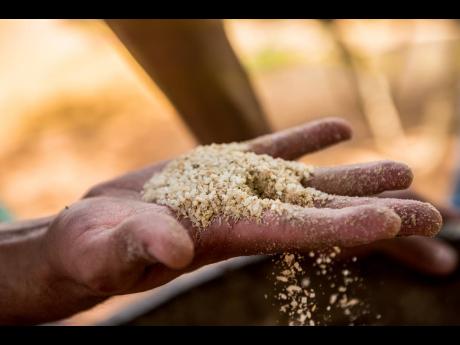Earth Today | Adaptation Fund raises US$116m in pledges to help vulnerable countries
RECOGNISING THE Adaptation Fund’s tangible and effective actions on the ground for the most vulnerable and its growing portfolio of work in developing countries, several contributor governments have come forward with new pledges to the Fund totalling nearly US$116 million.
Coinciding with the 5th anniversary of the Paris Agreement and Climate Ambition Summit 2020, pledges and contributions to the Fund included those from Germany (€50 million), Italy (€30 million) and Sweden (US$15.2 million, a quarter of its four-year pledge made last year), as well as Belgium’s Walloon Regional Government (€3.8 million) and Brussels-Capital Regional Government (€185,000). Together they sum to the equivalent of the nearly US$116 million.
“The total represents a remarkable effort during a challenging economic year ravaged by the COVID-19 pandemic. Although it fell just shy of the Fund’s US$120 million resource mobilisation target for 2020, it is possible more new pledges may follow,” note a release from the Fund.
The Fund’s board recently raised its resource mobilisation target by 30 per cent to account for the continuing urgency of adaptation action, record demand for projects it continues to receive, its expanding actions under its strategic pillars of Action, Innovation and Learning and Sharing, and an approximate US$280 million active project pipeline.
The Fund, on December 14, held a virtual Contributor Dialogue for Ambition in Adaptation Finance where ministers, other high-level contributor and recipient government officials, national implementing entities and civil society gathered to recognise the Fund’s continuing efforts to deliver high-quality, concrete adaptation projects. This is while building country ownership through its pioneering Direct Access modality, and expanding and adapting its work across all areas for the most vulnerable communities despite the challenges faced from the COVID-19 pandemic this year. They also stressed the need to accelerate adaptation finance to meet the tremendous urgency of climate change.
GRATEFUL FOR SUPPORT
In announcing Germany’s new €50 million pledge to the Fund, Jochen Flasbarth, state secretary for Germany’s Federal Ministry for the Environment, Nature Conservation and Nuclear Safety, said developing countries have been hit incomparably harder by COVID-19 amid increased climate change vulnerabilities and already weakened health systems.
As the Fund’s largest contributor, he said Germany is grateful for the Fund’s support, vision and inspiration.
“Already before the COVID-19 crisis, the Adaptation Fund was well placed to fighting the roots of zoonotic diseases such as COVID-19 through making communities more resilient to external shocks by project interventions that reduce water and food dependencies and increase disaster risk preparedness,” he said.
“This support is invested into an institution with an impressive track record on adaptation knowledge gained from 105 projects (now 115) in 102 countries, often through work on the ground using existing locally led adaptation practices and indigenous wisdom. The contribution will also help the Fund to continue implementing the medium-term strategy which focuses on supporting action on the ground, innovating adaptation finance interventions and practices, as well as scaling up viable solutions in collaboration with the Green Climate Fund,” Flasbarth added.
“This Fund is formally on equal footing with the Global Environment Facility and Green Climate Fund under the Paris Agreement. It has its own distinct features and specialisation, and is more relevant than ever to fighting global challenges, respecting biodiversity and integrity of human interaction with nature and its planetary boundaries,” he said further.

